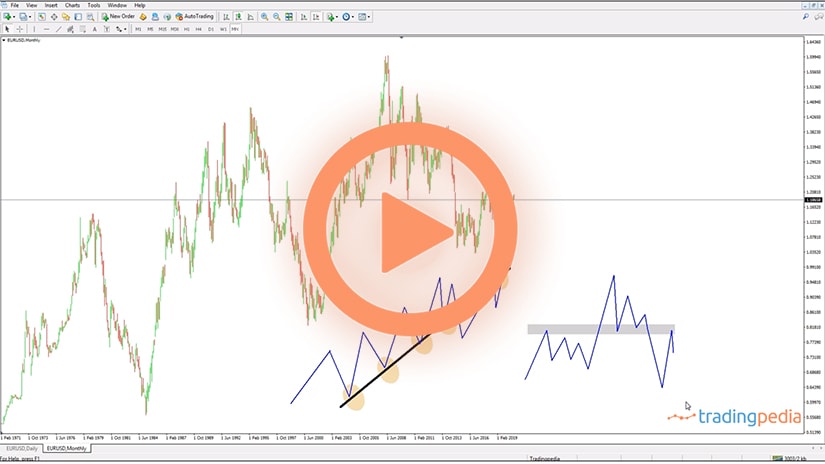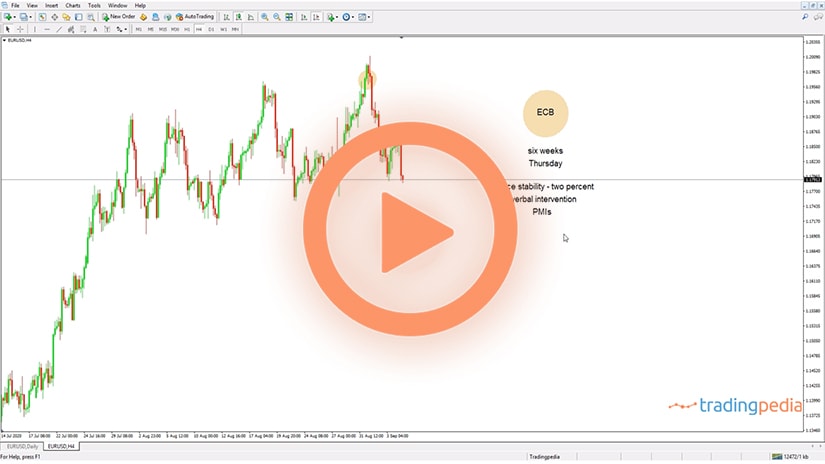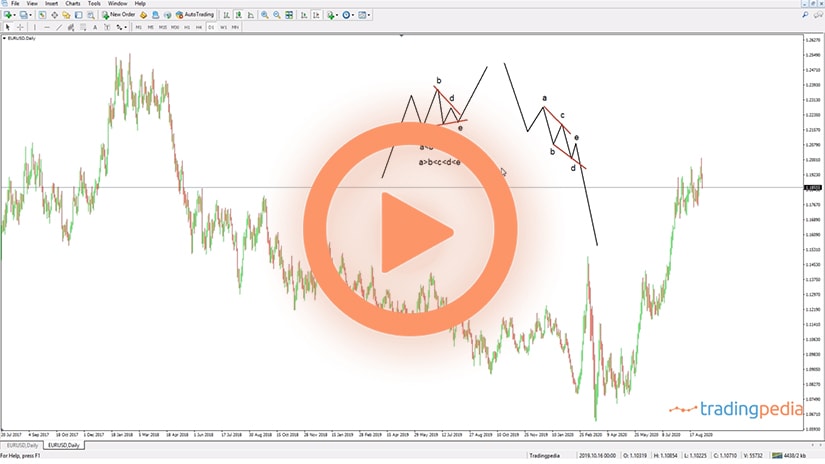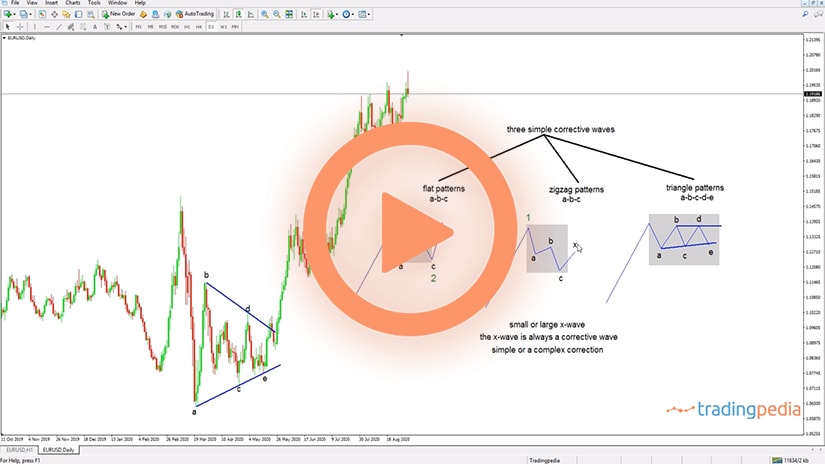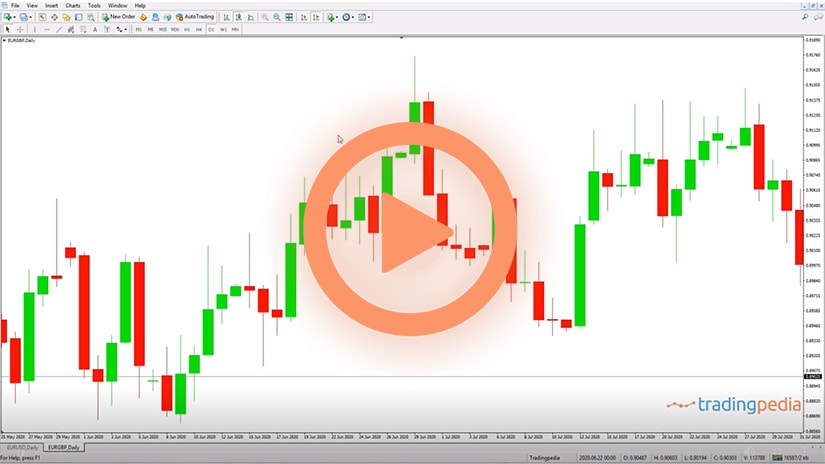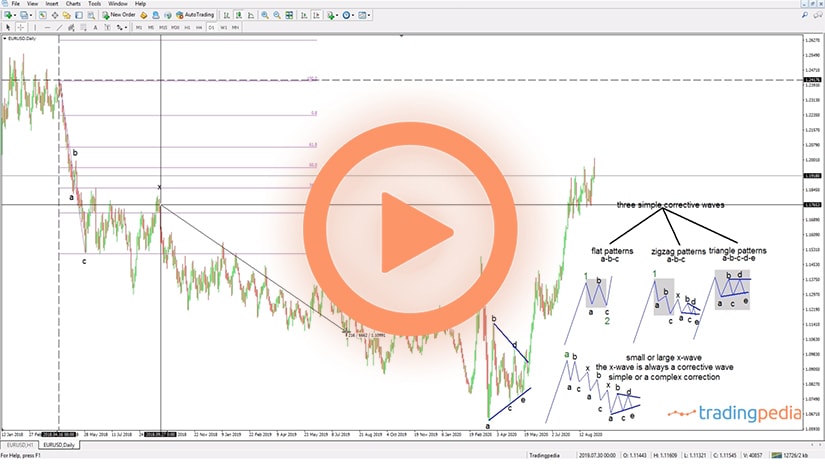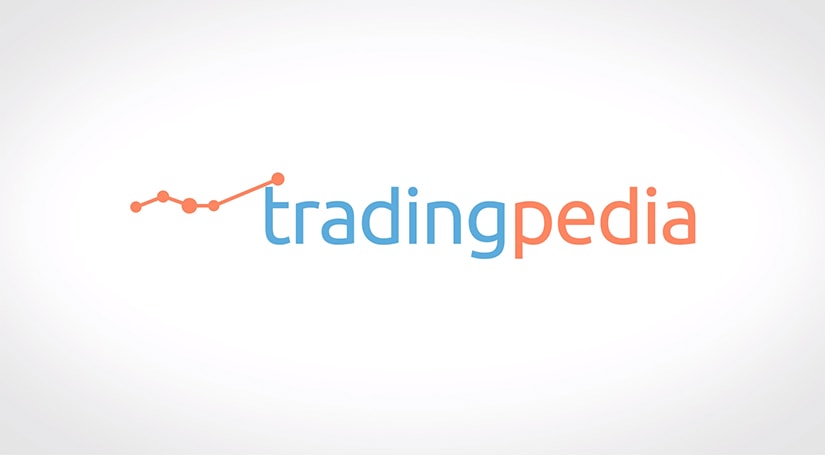
Hello there, this is tradingpedia.com and this video deals with how to choose the best broker for your trading strategy. Choosing a broker is important of a trading strategy, regardless of the fact that many traders do not quite care about this process.
Five-Digit Account
The first thing to consider is a five-digit account. It refers to the number of digits in a quote as these examples show. This is important because brokers that do not offer five-digit accounts in the 21st century are brokers with bad intentions. On a four-digit account the broker will requote you many times and by the time that it will execute your order, the market already traveled. So, if you have a trading strategy based on short-term entries and exits, that strategy will suffer.
Look for ECN or STP Accounts
Check for the broker to offer ECN or STP accounts or technology. They stand for Electronic Communications Network and Straight-Through Processing. Basically, it is a bit more expensive for the trader, but the broker guarantees that it will fill an order when there is a market.
On the FX market luckily there is always a market in the sense that there is always someone willing to take the other side of the trade, so you won’t have a problem. But ECN makes sure that there is at least one serious liquidity provider and the broker directs the orders to the market and are not kept in-house.
Segregation of Funds
Make sure that the broker offers segregation of funds. It means that the brokerage house as a business cannot touch the funds deposited. If you trade for a living and invest in the currency market with a long-term horizon, the funds are segregated usually at a custodial bank and have nothing to do with the business the broker runs. They are not used for salaries, rent, servers, etc., but kept separately and that is good in the case the broker has some issues.
Choose a Regulated Broker
Make sure the broker is regulated. This is a no-brainer, as you don’t want to trade with a broker that is not regulated. How to make sure a license exists? First, check on the website, but also inquire with the authority and see if that is true and the license is not expired. In the case that the broker suffers from bankruptcy, regulation helps.
In 2015 when the Swiss National Bank dropped the EURCHF peg from 1.20 it caught brokers and traders by surprise. Some brokers were busted and the financial authority intervened, as it was the case with the Alpari broker in the United Kingdom. The authority intervened contacted all clients and explained the process, the steps to follow, and the funds will be returned. If the broker was not regulated, that would not have happened.
Hidden Fees
Check for hidden fees. They refer to costs that are not normal or hidden in the sense that the broker may advertise that it charges only variable spreads and has no commissions. That may be true, but it may have the spreads wider than the average broker. No broker runs a charity but earns some fees. A broker also may charge a markup on deposits/withdrawals.
Demo Account
Also, check the demo account before opening and fund a live account. This is important because the currency market has periods when it moves fast and periods when it consolidates. For instance, today is the Labor Day holiday in the United States and the market is quite slow. As you can see the EURUSD barely moves and the more we go into the US time zone, the quitter the market becomes. When this happens it is difficult to test the platform. If you have a scalping strategy, slippage may affect the profits during volatile times created by economic reports and spreads may widen. But if you use a demo account, you know what to expect.
Related Videos
What Else Is Important?
So far in this article, we have covered the main features to look after when opening a trading account with a broker – five-digit quotes, ECN or STP accounts, segregation of funds, regulation.
An ECN account ensures the trader has access to the best technology available. Also, it assures the trader that the orders are routed to the market and not held in house.
A five-digit quote ensures the trader that the broker is not re-quoting when filling the orders. Also, it reduces the slippage and the trader gets a fair entry for the pending orders.
Segregation of funds comes hand in hand with regulation. Typically, this is a requirement from the financial authorities. Brokers need to segregate, to separate their customers’ funds from the funds used to run the business. Therefore, if and when something happens to the business, the financial authority intervenes and uses the segregated funds at one or more custodial banks to refund customers.
What else to look for when choosing a broker? Here are some things to consider: education materials, customer service, trading platforms, markets to trade, and minimum funding requirements.
Educational Materials
Brokers witnessed intense competition in the last years. As online trading became more and more popular, it forced brokerage houses to invest in trying to differentiate their services from the competition.
One area is the trading education area. Some brokers offer educational materials for free. Some others, on the other hand, offer them only to customers.
One thing is for sure – brokers focus on two areas. On the one hand, they want to attract new customers. However, even more importantly, they need to retain the current ones.
To succeed, education materials are key. Technical and fundamental analysis change rapidly as there is so much going on in the online trading space. By constantly updating their educational materials, brokers have a better chance of retaining their customers and gaining new ones.
Customer Service
Customer service alone may make a difference between one broker and another. Ideally, there should be a live chat option available.
People do not like to call in, but they are not reluctant to ask questions via a live chat box, knowing that they talk to a real person. Most of the inquiries are typically about funds withdrawals or deposits, but sometimes it is just important to know that there is someone on the broker’s side that is ready to offer the needed assistance.
Trading Platforms
The trading platform is very important in choosing the broker. For the beginner trader, it does not matter that much the type of platform, but for the experienced one, it does.
For example, imagine as a trader you want to change brokers. To do so, you’ll have to be able to export your technical analysis studies from the current broker to the new one. If the new broker does not offer the same trading platform as the old one, there is a problem.
Because of that, many brokers opted for the MetaTrader platforms. However, not all brokers do so, as the trading platform is just another way of differentiating the services from one broker to another.
Some brokers decided to invest in their own trading platforms. This is an expensive process, with additional costs both in the developing and the support phase. On top of that, customers may be reluctant to try a new platform if they need to learn how to use it first.
It is, therefore, a trade-off and most trading platforms share the same features – they all let traders import data, allow automated trading, and offer a similar set of technical indicators.
For the trader, it is important that the trading platform is not slowing down the PC and that a mobile version exists too. This way, they can monitor the markets better.
Markets to Trade
Brokers expanded their services and offered access to an entire range of financial assets. The rule of thumb says that the more markets to trade, the better.
Because financial markets are correlated, having access to different markets leads to a better risk management system. For instance, traders may hedge a position partially via initiating another position in a different asset.
For example, the Canadian dollar and the price of oil have a direct correlation. More precisely, on a trending oil market, higher or lower, the Canadian dollar follows the price of oil religiously.
But not all brokers allow the direct hedging of a position. Therefore, one can hedge a long oil position by buying the USD/CAD pair. Or, a short S&P 500 position by buying the USD/JPY. For this, it is important to be aware of the direct and indirect correlations that exist in financial markets and the correlation degree.
The best brokers, therefore, try to offer as many financial assets as possible. A good broker should have currencies, indices, precious metals, energies. A great broker would add main bonds (e.g., U.S. 10-year Treasury, German bund) and other commodities too.
Minimum Funding Requirements
One of the biggest obstacles for many traders is the minimum funding requirements that some brokers have. Many brokers require the customers to deposit a minimum amount when funding the account. Some have quite a big limit, but some others allow traders to trade with as little as $5 or less.
If you think of this situation, you would not want to trade with $5. It tells you that the broker is likely unregulated, as it allows excessive leverage, which is risky and leads to quick losses.
Therefore, a good broker should have no minimum funding requirements. Instead, the leverage restrictions would force the trader to fund a certain minimum amount. For example, if the broker offers a trading account with leverage 1:30, it is quite difficult to trade with a $100 investment. You could, in theory, but only if the broker allows mini-lots to trade.
As this article showed, there is a lot going on when picking the best broker. Also, depending on the trading style, one broker may be suitable to one trader, another to a different one. Therefore, traders should do their own due diligence before choosing the right broker to partner with.
